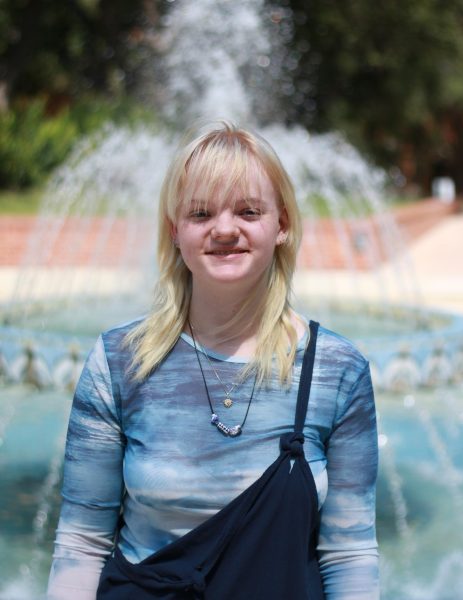“Aftershock,” a documentary film that highlights individuals in the fight against the Black maternal health crisis in the United States, was shown in a screening presented by Trinity clubs Partners in Health Engage (PIHE), American Medical Student Association (AMSA), and TU Women in Science and Tech (TWIST). The event helped celebrate Women’s History Month on March 7 in Dicke Hall. The movie’s themes of maternal mortality and systemic racism in medicine provoked emotional responses and reflections on what it means to be a student studying health.
Sophie Lawrence, junior biology major, is an officer of PIHE and viewed the film for the first time during the club event. She is specifically interested in studying reproductive health, which is the field of medicine spotlighted by the movie.
“It kind of made me stop and think career-wise: what kind of impact do I want to have in the community?” Lawrence said. Stretching outside of medicine, the film spotlighted rampant structural issues that consistently, disproportionately negatively impact non-white people. “It makes you stop and think how many areas of society are just completely pervaded by racism. … It was super emotional,” Lawrence said.
The documentary demonstrates the reality of the harrowing statistic that Black birthing people are 3-4 times more likely to die in childbirth than their white counterparts. Altogether, the United States reports significantly higher maternal mortality rates than any other developed country. “Aftershock” works to follow some of the major contributing factors to this epidemic, including systemic racism, increased cesarean section operations and the structure of privatized hospitals that encourage certain productive yet harmful practices.
Levolea Wallace, junior sociology major, attended the event. She spoke about the importance of students being exposed to media that educates and reckons with these issues.
“I think it’s very important especially because we have students here who are going into the field of medicine. One of the things when it comes to issues of systemic racism in the health care system is first educating yourself on those issues, becoming aware of them and seeing what you can do to change them … so other women of color won’t become another statistic,” Wallace said.
Lawrence echoed this reflection about what it means to elevate awareness of this issue to future medical students.
“I think that every doctor, regardless of whether or not you’re going into women’s health, … needs to be aware of how their unconscious bias may affect the way that they treat their patients, and how the system that they’re working in affects their ability, or furthers their ability, to let that unconscious bias kind of slip by unchecked,” Lawrence said.
Kien Jimmy Phan, senior international studies major with a concentration in global health studies, is an officer of PIHE and reiterated the importance of understanding social justice goals both as students and as professionals entering the world.
“As students, we have a privilege to learn about these things, that we have the opportunity to learn about all these things … it is important that work supporting marginalized peoples is carried with us,” Phan said.
Phan recognized movie screenings as a form of media that effectively educates and engages people. “Since it’s Women’s History Month, we wanted to do another screening.We researched movies that were about maternal health since that’s kind of what our organization is about,” Phan said. Familiarity with maternal health is constructive for the fundraising goals of the current PIHE project, the Maternal Center of Excellence in Sierra Leone. “It’s working towards Black mothers, and their ability to have babies safely, so to have a film that kind of captures the same essence of what we’re fundraising for, but close to home, was important to us,” Lawrence said.
The screening of “Aftershock” was an impactful event for Trinity students to engage and connect with the issues of maternal mortality and racism in health care. Lawrence said, “It’s really important that we make sure that our undergrads not only have that opportunity, but are encouraged to educate themselves.”
‘Aftershock’: The Epidemic of Black Maternal Mortality
Students respond to Partners in Health Engage’s screening of ‘Aftershock’
About the Contributor

Ellie Perrier, Illustrator
My name is Eleanor (Ellie) Perrier (She/They), I'm a junior art major working as an illustrator for the trinitonian. 90% of my closet is thrifted, and I love upcycling and sewing!







